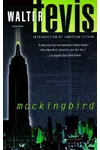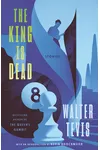Picture a storyteller who spun tales of pool halls, chessboards, and lonely aliens, capturing the hearts of readers and filmmakers alike—meet Walter Tevis! Born in San Francisco in 1928, this American novelist blended literary grit with science fiction wonder, crafting stories that leap from page to screen with unforgettable flair.
Tevis’s life was as layered as his novels. From childhood illness to personal struggles with addiction, he channeled his experiences into narratives of redemption and resilience, making him a unique voice in 20th-century literature.
The Making of Walter Tevis
Walter Tevis’s early years were marked by challenge and adventure. At age 10, a rheumatic heart condition landed him in a convalescent home, where he was given phenobarbital—a detail that later inspired the character Beth Harmon in The Queen’s Gambit. His parents moved to Kentucky, leaving him to cross the country alone by train at 11 to rejoin them. In Lexington, he befriended Toby Kavanaugh, who introduced him to pool halls and science fiction novels, sparking lifelong passions that shaped his writing. Tevis joined the Navy at 17, served in World War II, and later earned degrees in English from the University of Kentucky, studying under Pulitzer Prize winner A.B. Guthrie Jr. His early jobs, from teaching to working in pool halls, fueled his storytelling.
Walter Tevis’s Unforgettable Stories
Tevis’s novels are a masterclass in blending raw human struggle with vivid settings. His debut, The Hustler (1959), follows pool shark 'Fast Eddie' Felson, a tale of ambition and redemption that became a cinematic hit starring Paul Newman. The Man Who Fell to Earth (1963) is a haunting sci-fi story of an alien’s descent into alcoholism, brought to life on screen by David Bowie. The Queen’s Gambit (1983) traces chess prodigy Beth Harmon’s rise amid personal demons, captivating millions as a 2020 Netflix miniseries. Mockingbird (1980), a dystopian gem, explores a world where reading is forbidden, showcasing Tevis’s knack for weaving social commentary into gripping narratives.
His style is lean yet evocative, with themes of alienation, addiction, and the pursuit of mastery. Tevis’s own battles with alcoholism and gambling infuse his characters with authenticity, making their triumphs and failures deeply relatable. Whether it’s the clack of billiard balls or the quiet tension of a chess match, his settings pulse with life.
Why Walter Tevis Matters
Walter Tevis’s impact stretches far beyond his six novels. His ability to turn niche worlds—pool, chess, dystopian futures—into universal stories has inspired filmmakers and readers alike. Films like The Hustler and The Color of Money (1984), a sequel starring Newman and Tom Cruise, cemented his Hollywood legacy, while The Queen’s Gambit sparked a global chess renaissance. Translated into 18 languages, his works resonate across cultures, offering timeless insights into the human condition.
Tevis’s personal triumphs, like overcoming alcoholism with Alcoholics Anonymous in the 1970s, mirror the redemption arcs in his stories. His empathy for outsiders and underdogs continues to captivate, proving that even flawed heroes can leave a lasting mark.
- Born: February 28, 1928, San Francisco, California
- Key Works: The Hustler, The Man Who Fell to Earth, The Queen’s Gambit, Mockingbird
- Died: August 9, 1984, New York City (lung cancer)
- Notable: Mockingbird was nominated for a Nebula Award in 1980.
Snag The Queen’s Gambit or The Hustler and dive into Walter Tevis’s thrilling blend of grit and heart!








